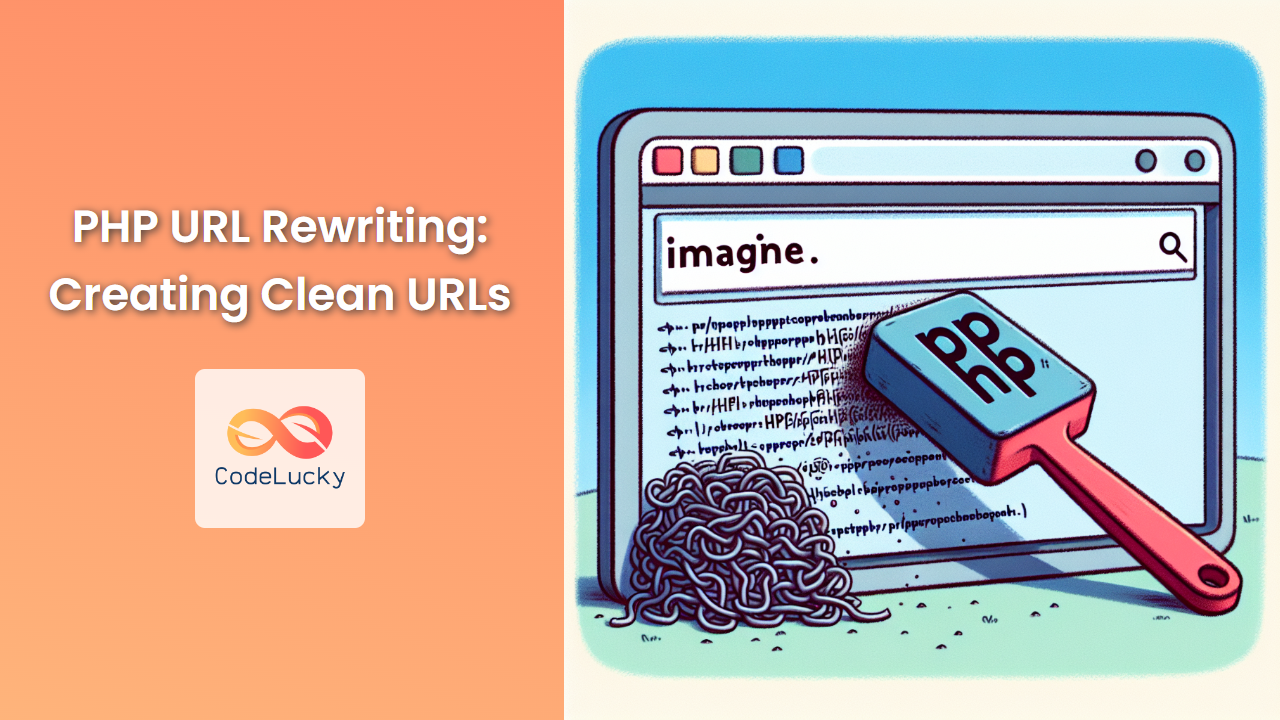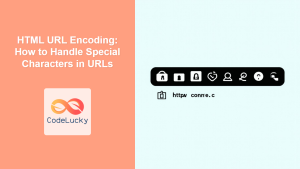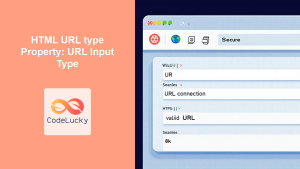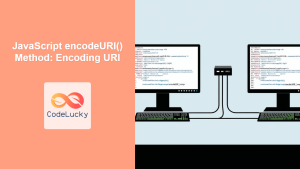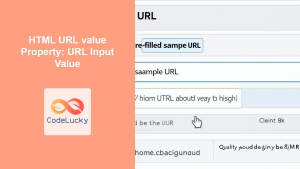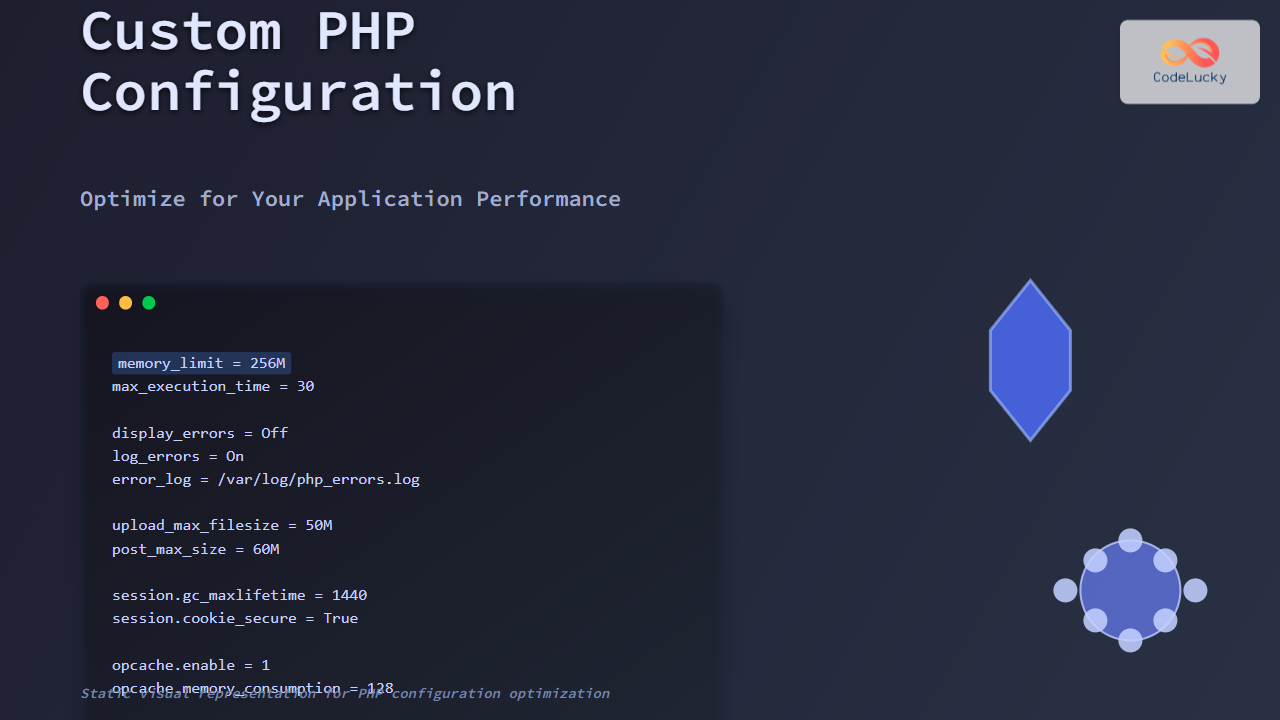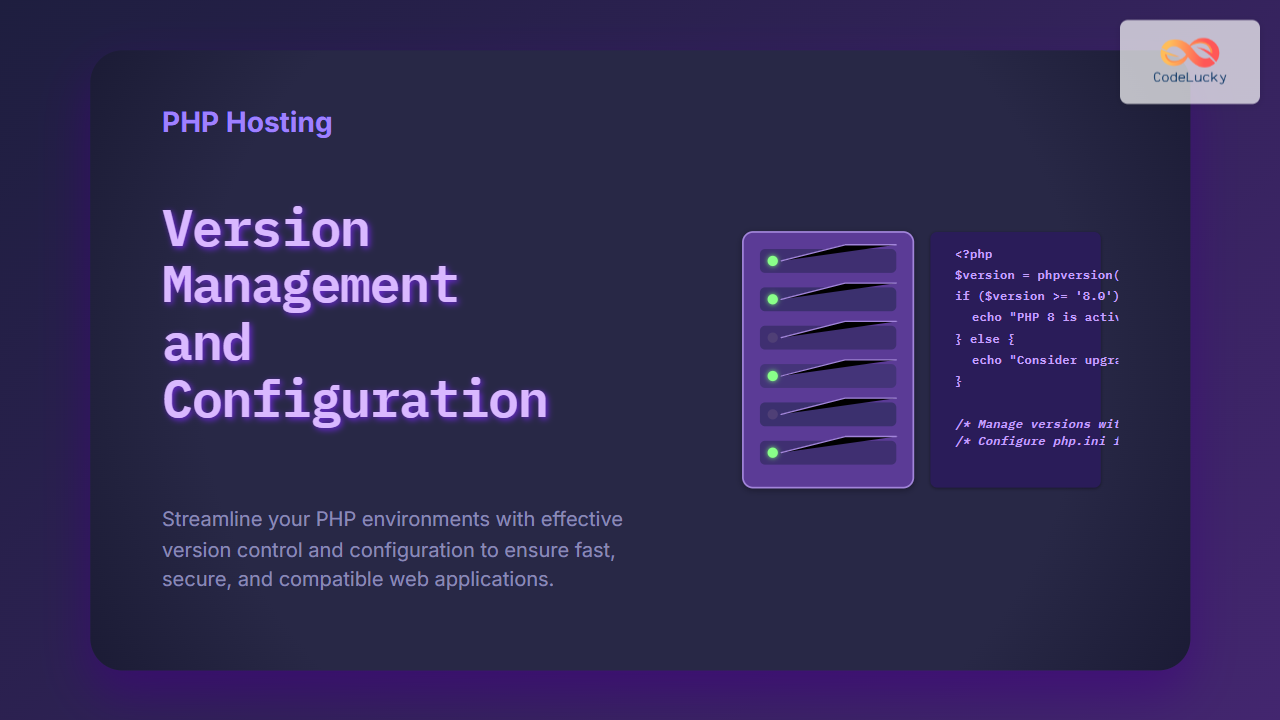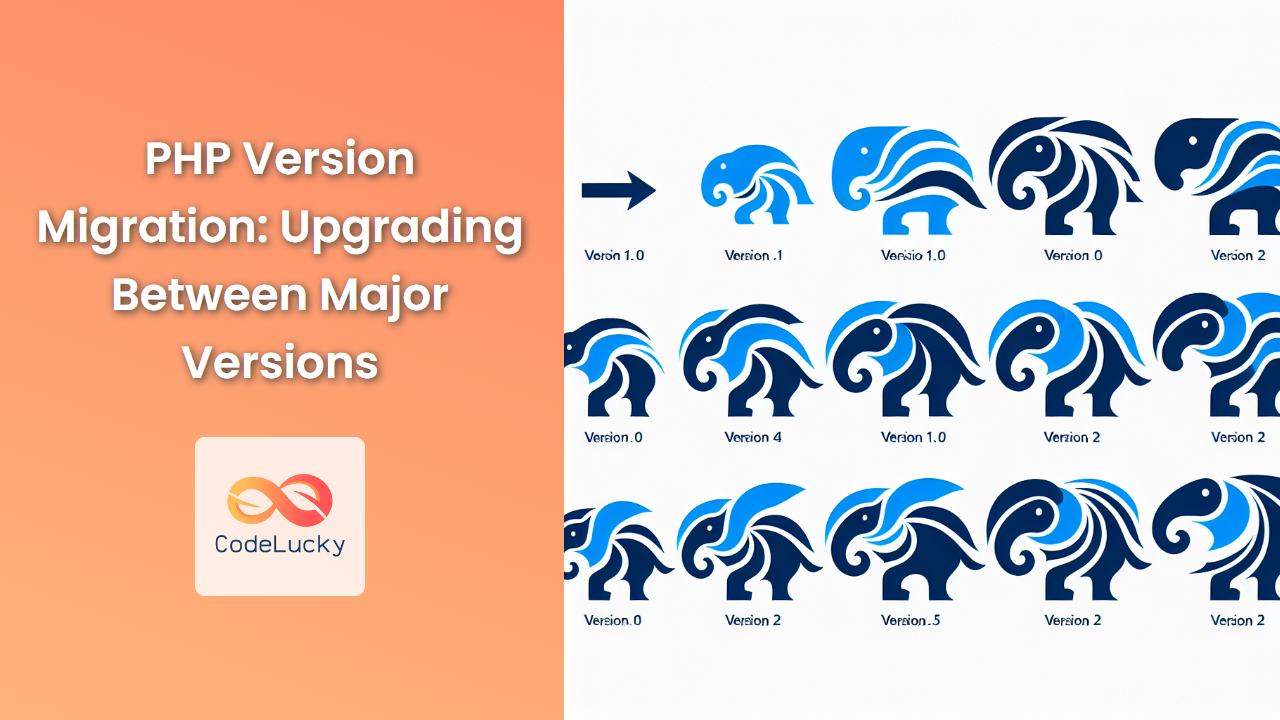In the world of web development, creating clean, user-friendly URLs is not just a matter of aesthetics—it's a crucial aspect of SEO, usability, and overall user experience. PHP, being one of the most popular server-side scripting languages, offers powerful tools for URL rewriting. In this comprehensive guide, we'll dive deep into the art of PHP URL rewriting, exploring various techniques to transform clunky, parameter-heavy URLs into sleek, memorable web addresses.
Understanding URL Rewriting
Before we jump into the code, let's understand what URL rewriting is and why it's important.
🔍 URL rewriting is the process of modifying the appearance of a URL without changing the underlying web application structure.
For example, instead of having a URL like this:
https://www.codelucky.com/article.php?id=123&category=php
We can have a much cleaner URL like this:
https://www.codelucky.com/php/clean-urls-with-php
Benefits of URL Rewriting
- Improved SEO: Search engines prefer clean URLs with relevant keywords.
- Enhanced User Experience: Clean URLs are easier to read, remember, and share.
- Increased Security: Hiding the underlying file structure can make it harder for malicious users to exploit vulnerabilities.
- Better Maintainability: Changes in the backend structure don't necessarily require changes in the URL structure.
Now that we understand the importance, let's dive into the practical aspects of URL rewriting with PHP.
Setting Up URL Rewriting
To get started with URL rewriting, we need to ensure that our server is configured correctly. Most modern web servers support URL rewriting, but the configuration differs slightly.
Apache Configuration
If you're using Apache (which is common for PHP applications), you'll need to enable the mod_rewrite module and use an .htaccess file.
- First, ensure
mod_rewriteis enabled in your Apache configuration. - Create an
.htaccessfile in your root directory with the following content:
RewriteEngine On
RewriteBase /
RewriteCond %{REQUEST_FILENAME} !-f
RewriteCond %{REQUEST_FILENAME} !-d
RewriteRule ^(.*)$ index.php?url=$1 [QSA,L]
This configuration tells Apache to redirect all requests to index.php, passing the requested URL as a parameter.
Nginx Configuration
If you're using Nginx, you'll need to modify your server block configuration:
location / {
try_files $uri $uri/ /index.php?url=$uri&$args;
}
This configuration achieves the same result as the Apache configuration.
Implementing URL Rewriting in PHP
Now that our server is configured, let's implement URL rewriting in PHP. We'll start with a basic example and then move on to more complex scenarios.
Basic URL Rewriting
Let's create a simple PHP script that handles different URLs:
<?php
// index.php
$request = $_GET['url'] ?? '';
$params = explode('/', trim($request, '/'));
switch($params[0]) {
case 'home':
include 'pages/home.php';
break;
case 'about':
include 'pages/about.php';
break;
case 'contact':
include 'pages/contact.php';
break;
default:
include 'pages/404.php';
break;
}
In this example, we're taking the URL parameter, splitting it by slashes, and using a switch statement to determine which page to load. This allows us to have clean URLs like:
https://www.codelucky.com/homehttps://www.codelucky.com/abouthttps://www.codelucky.com/contact
Handling Parameters in Clean URLs
Let's extend our example to handle parameters within clean URLs:
<?php
// index.php
$request = $_GET['url'] ?? '';
$params = explode('/', trim($request, '/'));
switch($params[0]) {
case 'article':
if(isset($params[1])) {
$articleId = $params[1];
include 'pages/article.php';
} else {
include 'pages/articles_list.php';
}
break;
case 'category':
if(isset($params[1])) {
$categoryName = $params[1];
include 'pages/category.php';
} else {
include 'pages/categories_list.php';
}
break;
// ... other cases ...
default:
include 'pages/404.php';
break;
}
Now we can handle URLs like:
https://www.codelucky.com/article/123(shows a specific article)https://www.codelucky.com/article(shows a list of articles)https://www.codelucky.com/category/php(shows articles in the PHP category)
Creating a Simple Router
To make our URL rewriting more flexible and easier to maintain, let's create a simple router class:
<?php
// Router.php
class Router {
private $routes = [];
public function addRoute($url, $handler) {
$this->routes[$url] = $handler;
}
public function handleRequest($url) {
$url = trim($url, '/');
foreach ($this->routes as $route => $handler) {
if ($this->matchRoute($route, $url, $params)) {
call_user_func_array($handler, $params);
return;
}
}
// No route found
include 'pages/404.php';
}
private function matchRoute($route, $url, &$params) {
$routeParts = explode('/', $route);
$urlParts = explode('/', $url);
if (count($routeParts) !== count($urlParts)) {
return false;
}
$params = [];
for ($i = 0; $i < count($routeParts); $i++) {
if (strpos($routeParts[$i], ':') === 0) {
$params[] = $urlParts[$i];
} elseif ($routeParts[$i] !== $urlParts[$i]) {
return false;
}
}
return true;
}
}
Now we can use this router in our index.php:
<?php
// index.php
require_once 'Router.php';
$router = new Router();
$router->addRoute('home', function() {
include 'pages/home.php';
});
$router->addRoute('about', function() {
include 'pages/about.php';
});
$router->addRoute('article/:id', function($id) {
include 'pages/article.php';
});
$router->addRoute('category/:name', function($name) {
include 'pages/category.php';
});
$router->handleRequest($_GET['url'] ?? '');
This approach gives us a more flexible and maintainable way to handle our routes.
Advanced URL Rewriting Techniques
Now that we have a solid foundation, let's explore some advanced URL rewriting techniques.
Handling Query Parameters
Sometimes we need to handle additional query parameters along with our clean URLs. Let's modify our router to accommodate this:
<?php
// Router.php
class Router {
// ... previous code ...
public function handleRequest($url) {
$urlParts = parse_url($url);
$path = trim($urlParts['path'] ?? '', '/');
foreach ($this->routes as $route => $handler) {
if ($this->matchRoute($route, $path, $params)) {
// Pass any query parameters to the handler
if (isset($urlParts['query'])) {
parse_str($urlParts['query'], $queryParams);
$params = array_merge($params, $queryParams);
}
call_user_func_array($handler, $params);
return;
}
}
// No route found
include 'pages/404.php';
}
// ... rest of the class ...
}
Now we can handle URLs like:
https://www.codelucky.com/article/123?lang=en
Our handler function would receive both the article ID and the language parameter.
Generating Clean URLs
To maintain consistency, it's important to generate clean URLs within our application. Let's create a helper function for this:
<?php
function url($path, $params = []) {
$base = 'https://www.codelucky.com/';
$url = $base . trim($path, '/');
if (!empty($params)) {
$url .= '?' . http_build_query($params);
}
return $url;
}
Now we can generate clean URLs in our PHP code:
$articleUrl = url('article/123', ['lang' => 'en']);
// Result: https://www.codelucky.com/article/123?lang=en
$categoryUrl = url('category/php');
// Result: https://www.codelucky.com/category/php
Handling Trailing Slashes
To make our URLs even cleaner, we might want to handle both versions of a URL with and without a trailing slash. Let's modify our router to accommodate this:
<?php
// Router.php
class Router {
// ... previous code ...
public function handleRequest($url) {
$urlParts = parse_url($url);
$path = trim($urlParts['path'] ?? '', '/');
// Check if the URL ends with a slash and isn't the root
if (strlen($path) > 0 && substr($url, -1) === '/') {
// Redirect to the URL without the trailing slash
header('Location: /' . $path, true, 301);
exit;
}
// ... rest of the method ...
}
// ... rest of the class ...
}
This modification ensures that URLs like https://www.codelucky.com/about/ are redirected to https://www.codelucky.com/about, maintaining consistency across our site.
SEO Considerations
When implementing URL rewriting, it's crucial to keep SEO in mind. Here are some tips to ensure your clean URLs are SEO-friendly:
- Use Keywords: Include relevant keywords in your URLs when possible.
- Keep it Short: Shorter URLs are generally better for SEO and user experience.
- Use Hyphens: Separate words with hyphens, not underscores.
- Avoid Parameters: Try to include important information in the path, not as query parameters.
- Implement Canonical URLs: Use the
<link rel="canonical">tag to avoid duplicate content issues.
Here's an example of how to implement canonical URLs in PHP:
<?php
function canonicalUrl($url) {
echo '<link rel="canonical" href="' . htmlspecialchars($url) . '" />';
}
// Usage
canonicalUrl('https://www.codelucky.com/article/php-url-rewriting');
Performance Considerations
While URL rewriting can greatly improve the user experience and SEO of your site, it's important to consider the performance implications:
- Caching: Implement server-side caching to reduce the overhead of processing rewrites for every request.
- Minimize Redirects: While redirects are sometimes necessary, try to minimize them as each redirect adds latency.
- Optimize Regex: If you're using regular expressions in your rewrite rules, ensure they're optimized for performance.
Here's an example of how you might implement basic caching in our router:
<?php
// Router.php
class Router {
private $routes = [];
private $cache = [];
// ... previous code ...
public function handleRequest($url) {
$urlParts = parse_url($url);
$path = trim($urlParts['path'] ?? '', '/');
// Check cache first
if (isset($this->cache[$path])) {
call_user_func_array($this->cache[$path]['handler'], $this->cache[$path]['params']);
return;
}
foreach ($this->routes as $route => $handler) {
if ($this->matchRoute($route, $path, $params)) {
// Cache the result
$this->cache[$path] = [
'handler' => $handler,
'params' => $params
];
call_user_func_array($handler, $params);
return;
}
}
// No route found
include 'pages/404.php';
}
// ... rest of the class ...
}
This simple caching mechanism can significantly reduce the processing time for repeated requests.
Conclusion
PHP URL rewriting is a powerful technique that can dramatically improve the usability and SEO of your website. By implementing clean URLs, you're not only making your site more user-friendly but also potentially boosting its search engine rankings.
Remember, the key to successful URL rewriting is to keep your URLs:
- 🔑 Descriptive
- 🔑 Consistent
- 🔑 SEO-friendly
- 🔑 User-friendly
By following the techniques and best practices outlined in this guide, you'll be well on your way to creating a more polished, professional web application with PHP.
Happy coding, CodeLucky developers! 🚀💻

